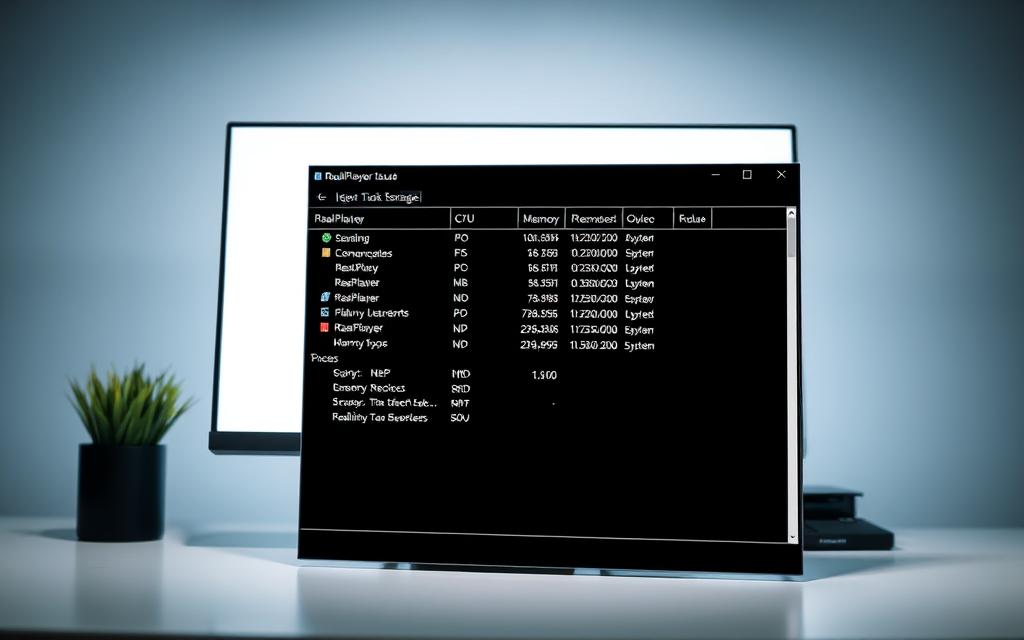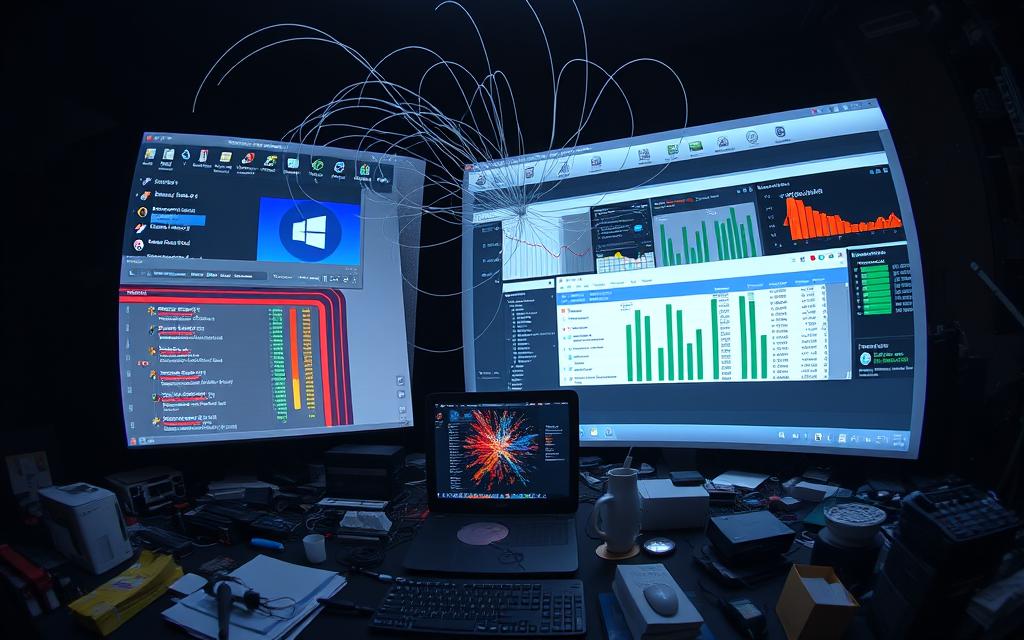Table of Contents
Many users report frustration with older media players draining system performance. Excessive CPU usage and storage depletion often trace back to outdated software struggling with modern demands.
Compatibility issues arise across Windows versions, from XP to Windows 10. Background processes like media indexing can spike resource consumption, sometimes hitting 100% CPU utilization during library scans.
This guide explores practical fixes—from updates to complete removal. Addressing these concerns helps restore optimal system speed and reclaim valuable disk space.
Decade-long user complaints confirm this isn’t a new issue. Solutions exist to resolve the problem efficiently.
Why RealPlayer Consumes Excessive Resources
Legacy software like RealPlayer often bogs down performance. Older versions lack optimizations for modern Windows systems, leading to high CPU and RAM usage.
The player stores media metadata in RAM during tagging. Large libraries overwhelm older hardware, especially on Windows XP or 7 setups. This forces excessive page file swapping, slowing the entire computer.
Background processes continue running after closing the real player. Indexing tasks spike CPU usage to 100%, even on AMD Athlon systems. Modern alternatives handle these tasks more efficiently.
Fragmented prefetch data worsens the problem over time. Fast processors mask these issues temporarily, but the underlying inefficiencies remain.
Diagnosing the RealPlayer Issue
Resource-heavy applications often leave telltale signs in system metrics. Pinpointing the exact cause requires examining CPU usage, memory allocation, and storage patterns. Modern Windows versions include built-in tools for this analysis.

Checking CPU and Memory Usage via Task Manager
Press Ctrl+Shift+Esc to launch Task Manager. Navigate to the “Processes” tab and locate RealPlayer entries. Sustained high percentages (≥80%) indicate inefficient resource handling.
Right-click the process to adjust priority. Setting it to “Below Normal” may reduce performance strain. For deeper insights, switch to the “Performance” tab and observe memory spikes during playback.
Identifying Large or Redundant Media Libraries
Open RealPlayer’s library settings and check indexed folders. Bulk media collections often trigger background scans that drain resources. Consolidate storage locations or remove duplicates to minimize indexing load.
Use Windows Resource Monitor (resmon.exe) to track file access patterns. Frequent reads of prefetch data suggest fragmentation issues. Maintain at least 200MB free space per source drive to prevent slowdowns.
Fixing the Problem
Resolving high resource usage requires targeted troubleshooting steps. Below are three proven methods to optimize performance and free up system capacity.
Update or Reinstall RealPlayer
Outdated versions often lack efficiency improvements. Visit the official site to download the latest player release. For clean reinstalls:
- Uninstall via Windows Control Panel (Programs > Uninstall)
- Delete residual files in %AppData% and Program Files
- Run the new installer as administrator
Adjust RealPlayer’s System Priority
Reduce CPU strain by modifying process priority:
- Launch Task Manager (Ctrl+Shift+Esc)
- Right-click real player under Processes
- Set Priority to “Below Normal”
This prevents background tasks from monopolizing resources.
Uninstall RealPlayer Completely
For persistent issues, removal may be necessary. Follow this Windows-version guide:
| Windows Version | Uninstallation Steps | Registry Cleanup Required? |
|---|---|---|
| XP/7 | Control Panel > Add/Remove Programs | Yes |
| 8/10/11 | Settings > Apps > Uninstall | Optional |
Post-removal, use tools like CCleaner to erase leftover data. Migrate music and video libraries to modern alternatives like VLC or PotPlayer for better performance.
Conclusion
Managing RealPlayer issues ensures smoother computer performance. Legacy media players often struggle with modern Windows systems, causing slowdowns.
Regular updates and system checks prevent long-term problems. Consider switching to lightweight alternatives like VLC for better efficiency.
Free up disk space and monitor resource usage. A well-maintained system runs faster and lasts longer. For persistent issues, explore deeper fixes.
Stay proactive with software maintenance. Your computer will thank you.
FAQ
How do I check if RealPlayer is using too much CPU or memory?
Open Task Manager (Ctrl+Shift+Esc), go to the Processes tab, and look for RealPlayer. High CPU or memory usage will be displayed in percentage or MB/GB.
Can a large media library slow down RealPlayer?
Yes. If your library contains many large video or music files, it may cause performance issues. Clearing unnecessary files can help.
Will updating RealPlayer fix resource problems?
Often, yes. An outdated version may have bugs. Download the latest update from the official site to improve stability.
How do I change RealPlayer’s system priority?
In Task Manager, right-click RealPlayer under Processes, select Set Priority, and choose Below Normal or Low to reduce impact.
What if uninstalling RealPlayer is the best solution?
Use Windows Settings > Apps > Apps & Features, find RealPlayer, and select Uninstall. Consider alternative media players like VLC.
Why does RealPlayer keep running in the background?
It may be set to launch at startup. Disable this in Task Manager > Startup or within RealPlayer’s settings.
Are corrupted files causing errors in RealPlayer?
Possibly. Try reinstalling or using the repair tool in Windows Settings > Apps > RealPlayer > Modify.









